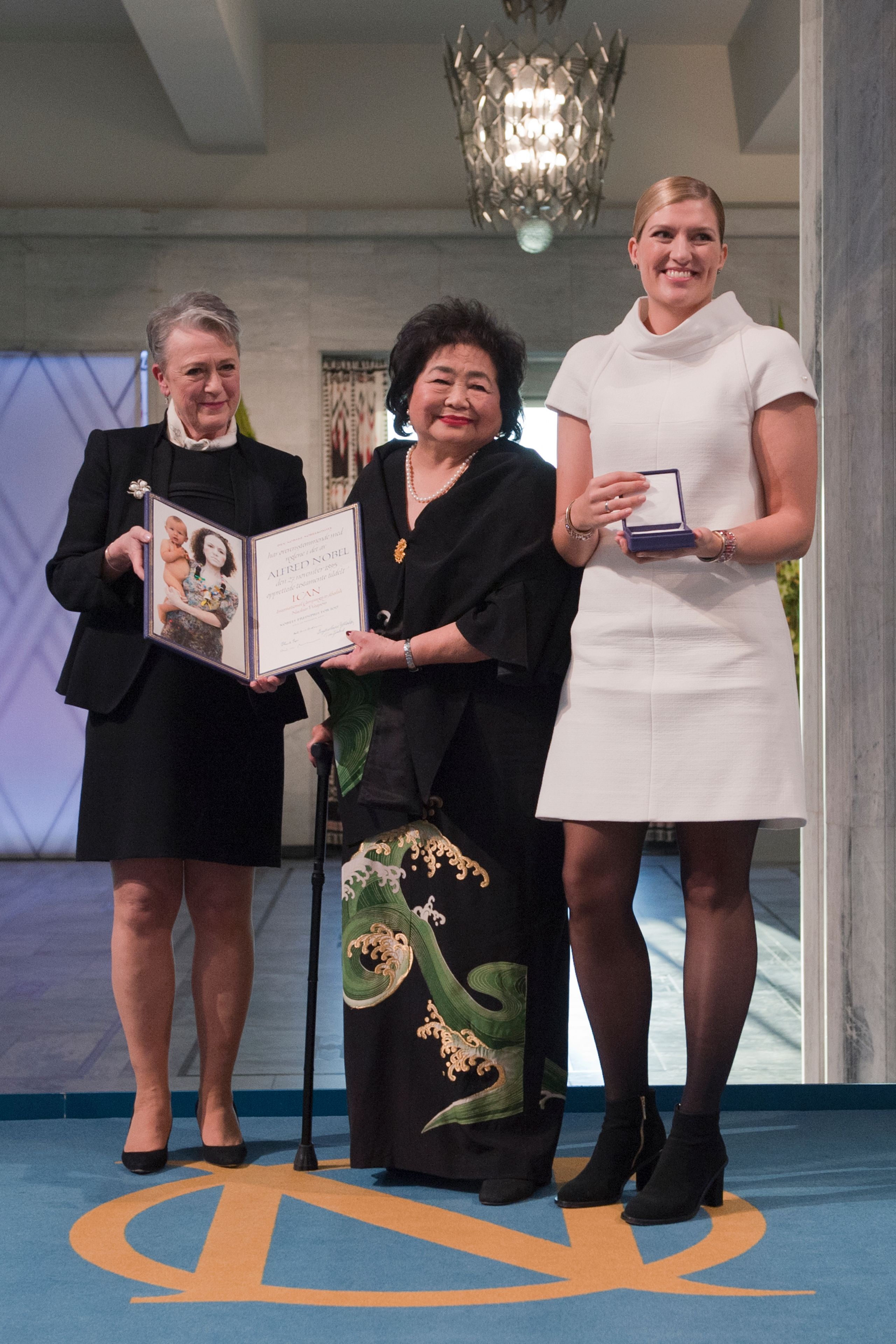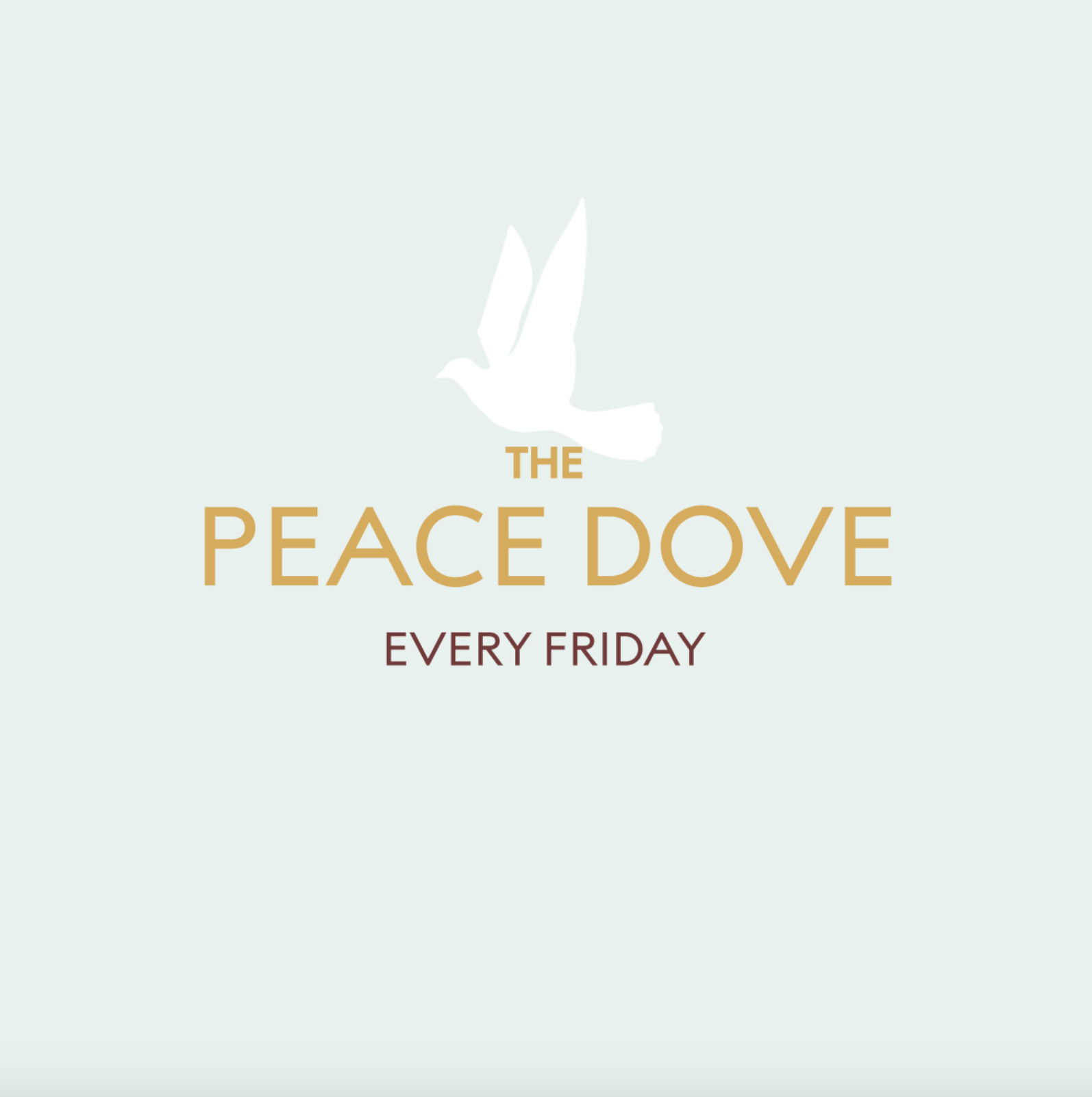Moving closer to a ban on Nuclear Weapons
The Good News of the Week: This week marks the 75th anniversaries of the bombings of Hiroshima and Nagasaki. The anniversaries are commemorated around the world, while at the same time, a global ban on nuclear weapons is moving closer to its goal. Only 7 countries are needed in order for the ban to take effect.
The time was 11.02, August 9 1945, when the atomic bomb Fat Man was dropped on the city of Nagasaki. All life within a kilometre radius was obliterated, and the clock pictured above, which was on display in the Nobel Peace Prize Exhibition at the Nobel Peace Center in 2017, stopped. More than 200 000 people died in the two US nuclear attacks on Japan. Survivors, and people deprived of family-members and friends, have fought for a ban on nuclear weapons ever since. But now, they are receiving support from more and more states around the world, and a ban on nuclear weapons is finally within reach. In July, two new countries, Botswana and Fiji, ratified the UN Treaty banning nuclear weapons, and on August 6 Ireland, Niue, and Nigeria followed suit. 43 of the world’s states have joined the ban so far. Once 50 states have ratified the treaty, it will enter into force. ICAN, the International Campaign to Abolish Nuclear Weapons, hope that the magic number 50 will be reached before the end of the year.
"The support for the UN Nuclear Ban clearly shows that a majority of the world’s states believe that nuclear weapons are outdated, unacceptable and illegitimate. The ban has created a new international norm against nuclear weapons that will be strengthened in the future,"
ICAN is the leading civil society organization in the work to bring a ban on nuclear weapons under international law. In December 2017, ICAN received the Nobel Peace Prize for its “work to draw attention to the catastrophic humanitarian consequences of any use of nuclear weapons and for its ground-breaking efforts to achieve a treaty-based prohibition of such weapons.” In June same year, 122 UN member states had signed the proposed treaty banning nuclear weapons. But in order for the Treaty to enter into force, it must also be ratified by 50 member states. No NATO country has so far joined the ban, not even Norway. Several municipalities in Norway have pledged their support for the ban, including the capitol city of Oslo.
"Norway should take responsibility and ratify the UN Ban on Nuclear Weapons. As long as we have nuclear weapons in the world, we cannot be sure that what happened in Hiroshima and Nagasaki won’t happen again,"
On Friday 7 August Borgen released a peace dove, from the Nobel Peace Center in Oslo, to mark the 75th anniversaries.
Since the bombing of Hiroshima and Nagasaki, several countries have acquired nuclear weapons, and today nine countries have a total of 14 000 nuclear weapons. When the Norwegian Nobel Committee awarded the Nobel Peace Prize to ICAN in 2017, it pointed out that the danger of using these weapons is greater today, than in a very long time. The Nobel Committee emphasized that a ban in itself would not be sufficient in abolishing nuclear weapons, and that the Peace Prize was intended as an invitation to the world’s nuclear powers to enter into dialogue and negotiations with the intent to gradually abolish all nuclear weapons.
Even if we get a ban, the world will not be free of nuclear weapons. But the norm will be strengthened. We already see that the view on nuclear weapons is changing, says ICAN’s Tuva Widskjold.
"Financial institutions are withdrawing from the nuclear weapons industry, and the pressure on nuclear weapon states to enter into dialogue on disarmament is increasing. It is us humans who have created nuclear weapons, and it is we who can abolish them. It comes down to political will."
Did you know that….
… Hibakusha is the Japanese word for survivor of the atomic bombs in Hiroshima and Nagasaki. In December 2017, a group of hibakushas from Japan came to the Nobel Peace Center to visit the Nobel Peace Prize Exhibition Ban the Bomb on ICAN and the fight against nuclear weapons.
Every Friday at noon, the Nobel Peace Center will release a peace dove together with “The good news of the week.”The dove is released from a window at the Nobel Peace Center, situated on the City Hall Square. As the dove crosses the square, the John Lennon song Give Peace a Chance will play from the bell towers.
Share:

